Infertility refers to the inability for a couple to conceive a child after one year of frequent, unprotected intercourse. Of the 15% of couples who are infertile, approximately one-third of infertility is attributed to the female partner, one-third attributed to the male partner and one-third is caused by a combination of problems in both partners or is unexplained[1].
Male infertility is caused by a decrease in sperm production, abnormal sperm function or blockages that prevent the delivery of sperm. Although there are many factors, such as illnesses, injuries, chronic health problems or lifestyle choices that may play a role in infertility, any of the following can cause a lower sperm count or abnormal sperm:
Blockages in the ducts that carry sperm
The tubes that carry sperm can become blocked due to infection, injury, trauma or abnormal development. The blockage may occur within the testicle, within the tubes that drain the testicle, in the epididymis, vas deferens or the urethra, or near the ejaculatory ducts.
Hormone problems
Infertility can result from disorders of the testicles or an abnormality affecting other hormonal systems including the hypothalamus, pituitary, thyroid and adrenal glands.
Infections
Infections that cause inflammation of the epididymis or testicles along with some sexually transmitted infections, can interfere with the health or production of sperm.
Klinefelter’s syndrome
Klinefelter’s syndrome is an inherited chromosome defect that occurs when a male is born with two X chromosomes and one Y chromosome (instead of one X and one Y) which causes an abnormal development of the male reproductive organs.
Retrograde ejaculation
Retrograde ejaculation refers to when the semen enters the bladder during orgasm instead of emerging out the tip of the penis. Several health conditions can cause this condition, including diabetes, spinal injuries, medications, or surgery of the bladder, prostate or urethra.
Undescended testicles.
An undescended testicle occurs during fetal development when one or both testicles fail to descend from the abdomen into the scrotum. Decreased fertility is more likely in men who have this condition.
Varicocele
The most common reversible cause of male infertility, Varicocele refers to the swelling of the veins that drain the testicle. Varicocele results in the reduced quality of sperm and may be caused by abnormal testicular temperature regulation.
Health, lifestyle and environmental factors may also may effect male infertility. From exposure to excessive heat or industrial chemicals to overuse of tobacco, drugs or alcohol, there are numerous factors linked to male infertility.
When Should You See a Doctor?
Most men with male infertility usually do not notice its symptoms. If you have been unable to conceive a child after one year of unprotected intercourse and experience any of these following symptoms, you should schedule an appointment with The Fertility Institute:
- Difficulty with ejaculation, reduced sexual desire or difficulty maintaining an erection
- Pain, swelling or a lump in the testicle area
- Recurrent respiratory infections
- Abnormal breast growth
- Decreased facial or body hair or other signs of a chromosomal or hormonal abnormality
The cause for male infertility may be determined through an analysis of sperm and semen. At The Fertility Institute, our specialists can evaluate the concentration, movement and shape of the sperm to determine if and how male factors may be contributing to a couple’s infertility. A physical examination may detect varicocele or hormonal problems. Genetic testing can also identify specific obstacles to fertility and determine if there are any inherited disorders. At The Fertility Institute, we know that not being able to conceive a child can be frustrating and stressful and we want to help. Call us today to find out what treatments are available.
[1] WHO Technical Report Series. Recent Advances in Medically Assisted Conception, vol. 820 (1992), pp. 1-111.



